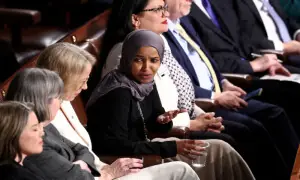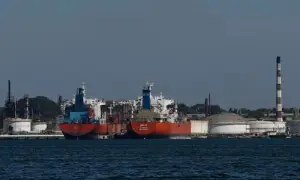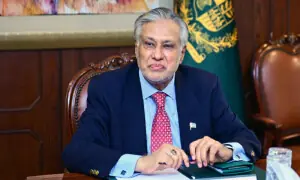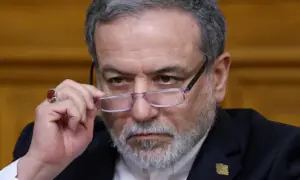Lebanon holds first parliament election since financial collapse, blast
4 min readBEIRUT: Lebanese voted on Sunday in the first parliamentary election since the country’s economic collapse, with many saying they hoped to deal a blow to ruling politicians they blame for the crisis even if the odds of major change appear slim.
The election, the first since 2018, is seen as a test of whether the heavily armed, Iran-backed Hezbollah and its allies can preserve their parliamentary majority amid soaring poverty and anger at parties in power.
Since Lebanon last voted it has been rocked by an economic meltdown that the World Bank says was orchestrated by the ruling class, and by a massive explosion at Beirut’s port in 2020.
But while analysts believe public anger could help reform-minded candidates win some seats, expectations are low for a big shift in the balance of power, with the sectarian political system skewed in favour of established parties.
“Lebanon deserves better,” said Nabil Chaya, 57, voting with his father in Beirut.
“It’s not my right, it’s my duty - and I think it makes a difference. There’s been an awakening by the people. Too little too late? Maybe, but people feel change is necessary.”
The meltdown has marked Lebanon’s most destabilising crisis since the 1975-90 civil war, sinking the currency by more than 90%, plunging three-quarters of the population into poverty, and freezing savers out of bank deposits.
In a symptom of the collapse, some polling stations suffered power cuts.
“I voted in hope to change the whole government and to have a better situation, for people to find work, be able to eat and drink. Things are very expensive and there is no electricity, no water,” said Khodr al-Ashi, 62, voting in Beirut.
In southern Lebanon, a political stronghold for the Hezbollah movement, Rana Gharib said she had lost her money in the financial collapse, but was still voting for the group.
“We vote for an ideology, not for money,” said Gharib, a woman in her thirties who was casting her vote in the village of Yater, crediting Hezbollah for driving Israeli forces from southern Lebanon in 2000.
Hussein Ismail, 40, also said he had lost money in the meltdown but this would not stop him voting for the Hezbollah-allied Amal Movement, led by longtime Parliament Speaker Nabih Berri. “Berri built us schools, roads, hospitals,” he said.
Polls are due to close at 7:00 p.m. (1600 GMT), with unofficial results expected overnight.
Iran’s Orbit
The last vote in 2018 saw Hezbollah and its allies - including President Michel Aoun’s Free Patriotic Movement (FPM), a Christian party - win 71 out of parliament’s 128 seats.
Those results pulled Lebanon deeper into the orbit of Shi’ite Muslim-led Iran, marking a blow to the influence of Sunni Muslim-led Saudi Arabia.
Hezbollah has said it expects few changes from the make-up of the current parliament, though its opponents - including the Saudi-aligned Lebanese Forces (LF), another Christian group - say they hope to scoop up seats from the FPM.
Adding a note of uncertainty, a boycott by Sunni leader Saad al-Hariri has left a vacuum that both Hezbollah allies and opponents are seeking to fill.
One former Hariri voter said she voted for billionaire Fouad Makhzoumi, a Sunni lawmaker running in Beirut against lists including one by the Hezbollah-backed Ahbash group.
LF voter Diana Safa said she expected results to be disputed. “It’s already tense today,” she said.
Responding to reports of scuffles near polling centers in parts of the country, Interior Minister Bassam Mawlawi said security incidents were “at an acceptable level.”
The head of an EU observation mission said they had seen “a calm atmosphere inside and outside the polling stations,” and there had been some “minor issues.”
The LF said Hezbollah supporters had attacked their delegates in three districts - Jezzine, Zahle and Baalbeck-Hermel, leaving at least four people wounded. A Hezbollah official said the group had no presence in Jezzine. The official could not immediately be contacted for comment on the other two areas.
The Lebanese Association for Democratic Elections said one of its monitors was beaten by Hezbollah supporters near Sidon. The Hezbollah official said he was not aware of the incident.
The association, which warned of vote-buying ahead of the contest, said activists of several parties, including Hezbollah, had asked its monitors to leave some polling stations.
The next parliament must nominate a prime minister to form a cabinet - a process that can take months. Any delay would hold up reforms that are needed to address the crisis and unlock support from the International Monetary Fund and donor states.
Prime Minister Najib Mikati, who clinched a draft IMF deal in April, conditional on reforms, has said he would be ready to return as premier if he was sure of a quick cabinet formation.
For the latest news, follow us on Twitter @Aaj_Urdu. We are also on Facebook, Instagram and YouTube.























Comments are closed on this story.